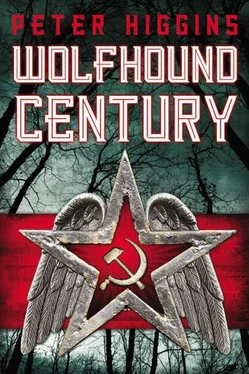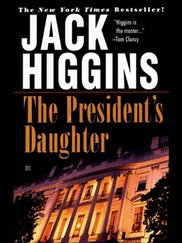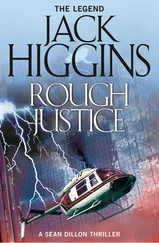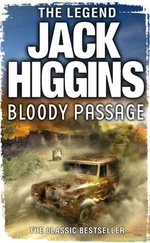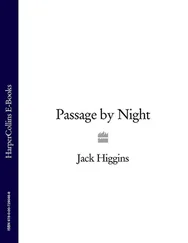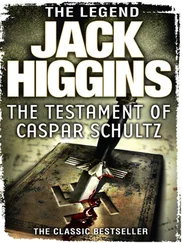Safran tried to put up some sort of defence, but he had no time to work out how. He tried curling himself into a tight ball with his back against Dog-in-mudjhik’s ripping jaw. Hugging himself to protect his vital organs. But it was the merest persiflage. Dog-in-mudjhik cut through all that. Dog-in-mudjhik was shredding him, tearing him off in chunks, snarling. Dog-in-mudjhik made himself as big as a house and started to dig. Safran was going to die a second time.
But the mudjhik’s angel stuff knew what it needed, and it was not dog thoughts any more. In the gap between two instants the space inside the mudjhik that Dog-in-mudjhik occupied ceased to exist. It closed up completely, solid where space had been. Dog-in-mudjhik went out like a snuffed candle. Dog-in-mudjhik was extinguished, leaving only a faint and diminishing smell of dog mind in the air.
What had once been Safran lay still, curled up tight, quivering like hurt flesh. Trying to close himself off. Trying too late to renege on the deal. Far too late. The angel-stuff encompassed him, fitting itself around him until there was no space between them. Then it moved in.
Safran-in-mudjhik felt sick and dizzy with horror. He was in a cold red-grey world. Seeing without eyes, hearing without ears, overwhelmed and confused by the mudjhik’s alien angel-senses, he couldn’t grasp where he was. Or who. Or what. But even then, in the moment of his profoundest and most appalling collapse, he began to feel something else. A new kind of triumph. He sensed the first glimmerings of an immense new power. The angel stuff was feeling it, but so was he. He was going to be a new thing in the universe. A first. A best. Immortal. Safran-in-mudjhik was strong.
Experimentally he swept an arm sideways. It cracked against a tree and broke it. The tree toppled towards him and he fended it off effortlessly. A long-eared owl, half-stunned and dislodged from its roost, struggled to get purchase on the air with its wings. Safran-in-mudjhik caught it in flight and smashed it against his own stone chest. Felt it break. Felt it die. So good. This would be fun. There were so many things to do. Sweet freedom things.
First and sweetest, revenge.
Safran-in-mudjhik began to explore his new self. There were angel-senses here, and angel memories that Dog-in-mudjhik could perceive nothing of. The bright immensity between the stars. Existence without time. He could remember. He belonged there. And now he was on his way back.
Somewhere in the rust-and-blood-red corridors of his new mind he could feel the connection with Lom. Faint but still there. He fumbled towards it, but he was still too clumsy to hold on to it. He couldn’t get it clear enough to know where Lom was. Not yet. But soon. Finesse would come. In the meantime, he certainly knew where she was. The Shaumian woman. The Safran-slicer. Creator of Safran-in-mudjhik. Kill her first. He turned towards the isba clearing and the creek. It was going to be a good first day.
The swollen river surged ahead, thick and brown and heavy. It carried the skiff onwards and widened as it went. Lom, cradling Safran’s sub-machine gun, stared mesmerised at the surface. It was scummed with ragged drifts of foam, littered with dead leaves and matted rafts of grass and broken branches. He felt drained. His head hurt. The new skin across the hole in his skull had split, and though a crust of dried blood had formed, it throbbed in time with his pulse and wept a clear sticky liquid. It was sore, and all the muscles of his body ached. The effort of pushing his way out of the souterrain had exhausted him, and the world around him felt diminished, distant and separate. He wondered if such easy power would ever come back to him again.
Maroussia handled the oars. She had little to do but steer the skiff with occasional touches, avoiding the larger obstacles floating along with them and keeping them clear of eddies and backwaters.
‘The waters are rising,’ said Lom. ‘It must have been raining in the hills.’
Maroussia shook her head.
‘The giant is gone,’ she said. ‘Without him to work the sluices, the waters are running wild. All this wetland will go. There’ll be nothing left but the city and the sea.’
A dark mossy floating lump of tree nudged heavily against the bow and rested there, travelling alongside them in the current. Lom stared at it. It was a mass of little juts and elbows of branch-stump and bark canker. Every crook and hole was edged with a dewy fringe of spider’s web. Lom shifted the weight of the gun, which was pressing into his leg. The death of Aino-Suvantamoinen, and the weight of all the other deaths before him, had left him feeling numbed and stupid. The boat was taking them into a darker, emptier future.
Maroussia pulled hard at the oars, skewing the Sib sideways. She rowed in silence, looking at nothing. Lom watched her hands on the oars. Large, strong, capable. She’d pushed back her sleeves. Her hands were reddened but her forearms were pale and smooth. He could see the tendons and muscles working as she rowed. Her black hair was slicked with river mist: it clung to her face and neck in tight shining curls.
‘It’s not your fault,’ said Lom.
‘What?’
‘The giant. It was Safran that killed him. Not you.’
‘He tried to help,’ said Maroussia.
‘He thought it was important. So did Raku.’
‘Yes.’
‘So it is important.’
For a long time Maroussia didn’t say anything. She just kept rowing. Then she looked up at him.
‘I’m going to find the Pollandore,’ she said. ‘The angel is destroying the world. The Pollandore can stop that.’
Lom noticed how thin she was, though her arms were strong. As she rowed, he watched the shadow play on the vulnerable, scoop-shaped dip at the base of her throat. The suprasternal notch. She was human and raw and beautiful. She rowed in silence for a long time. Lom watched the empty mudbanks pass by. He wiped his weeping forehead.
‘Vissarion?’
‘Yes?’
‘That thing in your head…’
‘It’s gone now.’
‘What was it? How did it get there?’
‘I was young. I don’t know how old. Eight maybe. Eight or nine. A child.’
‘That man I killed…’
‘Safran.’
‘He had one the same.’
‘Savinkov’s Children. They call us that. Ever heard of Savinkov?’
‘No.’
‘You should have. Everyone should know about Savinkov.’
‘I don’t.’
‘He was provost of the Institute at Podchornok when I was there. Vishnik went there too. He was my friend.’
‘But he didn’t… he didn’t have anything like that.’
‘No. Only a few of us. Before he came to the Institute, Savinkov was an technician of angel-flesh. His specialism was the effect of it on the human mind. Putting a piece of it in direct contact with the human brain.’
‘They put that stuff in people’s heads?’
‘And the other way round.’
‘You don’t mean…’
‘It’s common practice with mudjhiks to put in an animal brain: naturally they tried with human brains too, but it doesn’t work that way. The mudjhiks become uncontrollable. Insane. But there are less dramatic methods than full transplant. Angel flesh has a sort of life. Awareness. It affects you. And it encourages loyalty. The sacrifice of the individual for the sake of the whole. It’s a way of binding you to the Vlast.’
‘But… you… They did it to you when you were a child .’
‘That was Savinkov’s subject. His research. Were children more or less susceptible? Did the effect grow or diminish with time? How could you measure and predict it? The skull insertion technique was Savinkov’s invention. It used to go wrong a lot. The children died, or… well, Savinkov put them to work. In the gardens. The stables.’
Читать дальше
